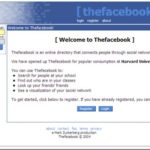The precarious life of an independent worker

The first section of my book ‘Run Your Business Better’ is all about challenging the reader the think about the reasons they are in business, if it’s a business at all, and the impact on them and their families.
I also challenge the reader to think if they are actually creating a business or have they created a job. Until you are clear on this you’re not in a position to start working on your business and running it better.
I’ve found over the years that in Australia, and in Melbourne in particular, when you meet someone there are two common questions asked – what’s your footy team, and what do you do for a living. For me, being a Kiwi, the first question is asked out of a ‘convention’, however I’m always interested in the second answer.
The majority of the time people tell me their job function – I’m an electrician, a lawyer, a teacher. So, I usually follow this question with ‘who do you work for?’ And this is where I get really interested when they say they work for themselves, as this tells me the way they think about what they do is as a job and not a business. Ask me what I do – I own a management consulting firm – I’m a business owner.
Now please don’t misunderstand me – I’m not saying being a business owner is better than having a job. In fact, I go further at the start of the book to highlight some real struggles that business owners face. So, what are some of the upsides and downsides of being an independent worker?
I define independent work as work that has three defining features: a high degree of autonomy; payment by task, assignment, engagement or sale; and a short-term relationship between the worker and the client. This term independent worker addresses both the independent business owner and the electrician, lawyer or teacher that has a job.
Upsides
The Forest Gump factor. “Life is like a box of chocolates, you never know what you’re going to get”. If you like variety of work, of work place, and of people you work with then independent work can be great.
Flexibility. I often tell people I think life would be more difficult for my family if I had a full-time job and the travel I had a number of years ago. My wife went back to university to become a doctor and was away on placements or working shifts for a number of years.
Now she works irregular (non-9-5) hours and days. Running my business and doing the work I do allows me the flexibility to make sure the family functions. I also enjoy that I get to pick my kids up from school at 3.30pm on a Friday and if I want I can go fishing on a Wednesday.
Satisfaction. There are two aspects of satisfaction – the most brutal is doing independent work beats being unemployed hands down. But I feel a lot more satisfaction by doing a job well and receiving the recognition (and the fee) directly rather than as a salaried employee.
Downsides
Not being treated like one of the team. Because you aren’t a permanent employee, or you’re an ‘outsider’ with little understanding of the business or the culture of the organisation, there is a real risk of almost being kept at arms-length – as if to not to get too close. You also have to navigate the politics at every single workplace.
Uncertainty. I have been consulting for a number of years and I fight with uncertainty quite regularly. One part of me says to back myself – I’ve been doing this for a long time and this history would indicate that I will be able to find work.
The other part me says, and the one thing my wife struggles with, that while I’ve had a good run what happens if more work doesn’t eventuate. You might say ‘great, let’s have a holiday’ but the worry about finances, the inability to plan anything, even in the short-term, and the feeling of responsibility can be almost debilitating.
New things. Not sure if this is a downside or an upside, but probably best described as a challenge. Independent workers have to learn new procedures and use different equipment or software. For me, I like this, and I like the challenge of learning new things, but also the ability for me to challenge my own status quo.
So, before you go and start your own business, join the freelance or gig economy, or even commence contract work, have a real think about what it means, and go in with your eyes wide open. Doing so you’ll be more successful either as an independent worker or a business owner.
Stephen Barnes is a business turnaround and recovery specialist, Board advisor and the principal of management consultancy Byronvale Advisors. He has over 25 years advising clients from new business start-ups to publicly listed companies and across a wide array of industries. He is a crisis manager that prides himself on quickly understanding the client’s business and issues and developing pragmatic solutions to complex problems. He is also the author of ‘Run Your Business Better’. To find out how Stephen can help you run your business better and quickly improve your business performance visit www.byronvaleadvisors.com.






